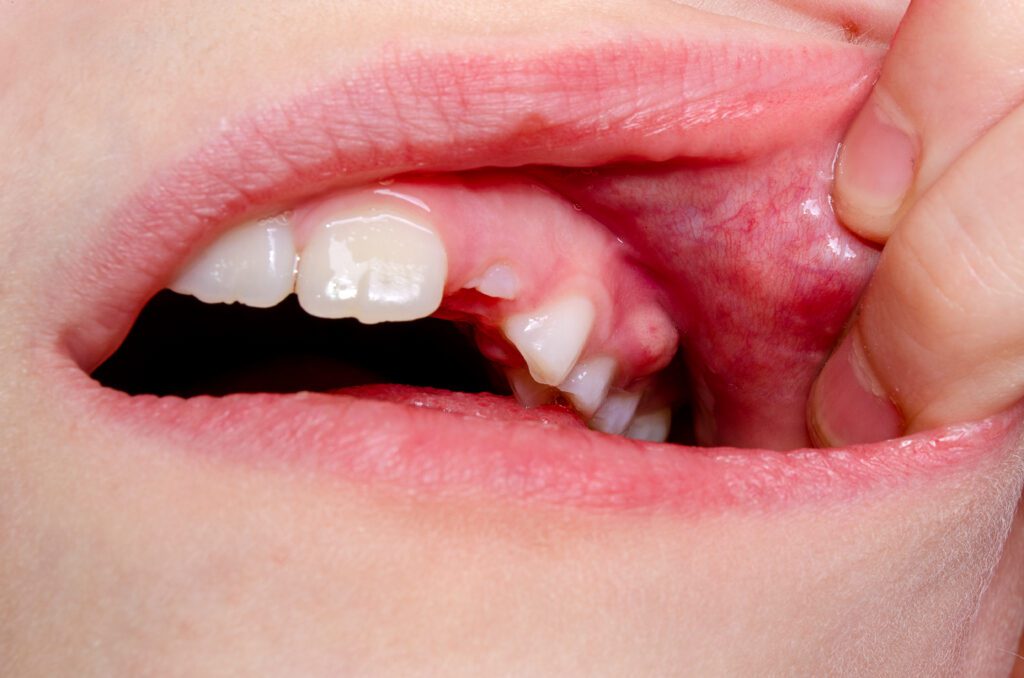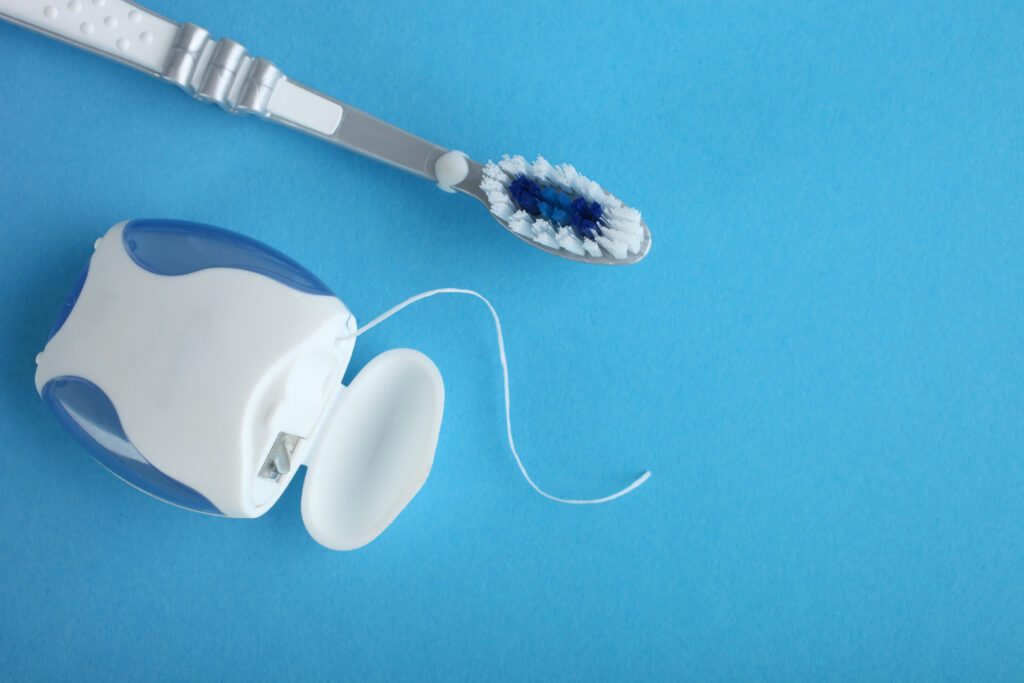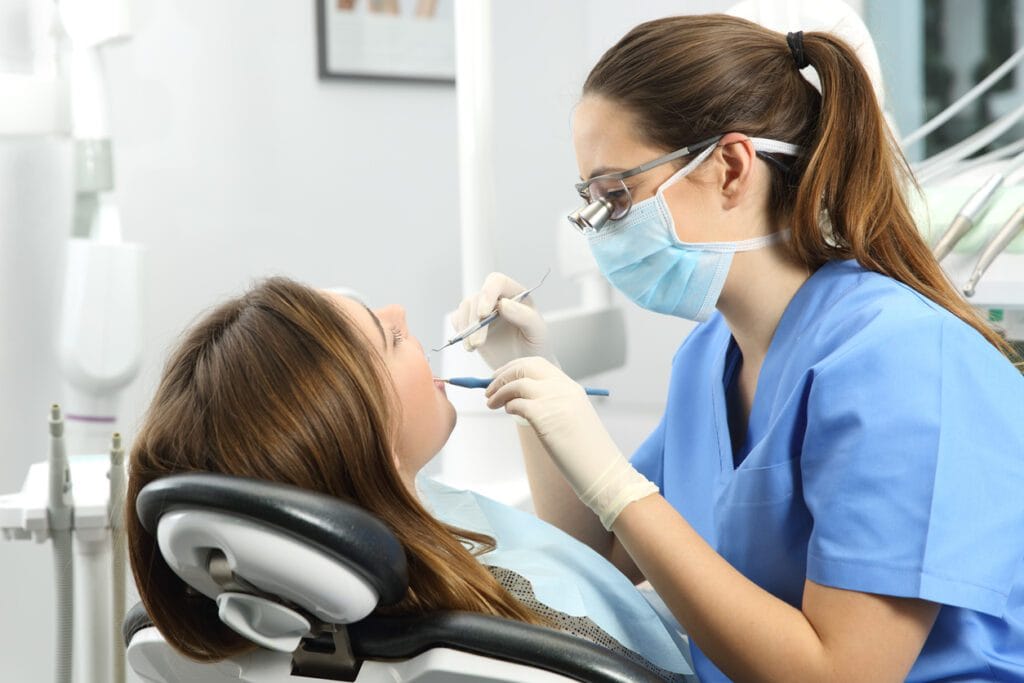Have you ever wondered if you can refer to a GP for dental problems? Many people find themselves asking this question when they face tooth pain or other oral health issues. While GPs are skilled in broad medical care, dental problems often require the expertise of a dedicated dentist.
Who Is A GP?
When you feel unwell, you may find yourself in a General Practitioner’s or GP’s office. A GP is your regular doctor who has broad knowledge about different health issues that people encounter. But what if the problem you’re facing is a toothache or another dental issue? Can your GP help, or should you head to a dentist near you? While GPs are great at handling many health issues, when it comes to tooth troubles, things can get a bit tricky.
This post will discuss what GPs can and can’t do regarding dental health care.

What is a Dental Problem?
In our day-to-day lives, maintaining good dental health is as important as taking care of the rest of our bodies. However, sometimes, despite our best efforts, dental health problems can occur. These problems fall under the broad category of issues that affect our teeth, gums, and oral health.
A dental problem, or a dental disease, can range from mild to severe and affect people of all ages. They typically start as minor issues such as cavities or gum inflammation, but if left untreated, they can progress into more serious conditions like severe gum disease or even oral cancer.
Effective dental care involves treating these issues and taking preventive measures to maintain oral health. Regular brushing, flossing, and regular scale and clean are part of this preventive care. However, when dental health problems do occur, they require prompt attention and treatment, often from a dental professional. Our dental clinic in South Perth is well equipped to deal with any general or emergency dental problems.

Common Examples of Oral Health Problems
Oral health problems are diverse, affecting millions of patients worldwide, and they can range from mild discomfort to acute dental conditions. Here are a few common ones:
Periodontal Disease: Also known as gum disease, periodontal disease starts as inflammation of the gums. If left untreated, it can lead to severe damage to the gum tissue and even tooth loss. Advanced stages of periodontal disease may result in the gums pulling away from the teeth, forming pockets that can become infected and lead to further bone and tissue loss. Regular dental check-ups and proper oral hygiene can significantly reduce the risk of developing this condition, emphasizing the importance of early detection and treatment.
Cavities: These occur when plaque, a sticky film of bacteria, builds up on your teeth and erodes the tooth’s enamel, leading to tiny holes or cavities. This common dental issue is largely preventable through regular brushing, flossing, and the use of fluoride-containing products. If cavities are not treated, they can grow larger and affect deeper layers of the tooth, potentially leading to severe toothache, infection, and even tooth loss.
Tooth Sensitivity: This problem involves discomfort or pain in teeth when encountering certain substances and temperatures. It often occurs when the tooth’s protective enamel is worn down, exposing the dentin layer beneath, which contains tiny tubes leading directly to the nerve center of the tooth. Using toothpaste designed for sensitive teeth can help manage this condition, along with avoiding acidic foods and beverages that can further erode enamel.
Tooth Erosion: This is the loss of tooth structure due to acid attacking the enamel. ommon sources of this acid include sugary and carbonated beverages, as well as gastric acids in cases of frequent vomiting or acid reflux. Tooth erosion can lead to increased sensitivity and a greater risk for cavities as the protective layer of the teeth wears away, making regular dental check-ups essential for early detection and management.
Bad Breath (Halitosis): Chronic bad breath can indicate gum disease, cavities, oral cancer, dry mouth, or bacteria on the tongue. It may also be exacerbated by certain foods, smoking, and poor dental hygiene. Regular oral hygiene practices, including brushing twice daily, flossing, and using mouthwash, can help reduce halitosis. Additionally, visiting a dentist can help identify and treat any underlying causes effectively.
Toothaches and Dental Emergencies: From toothaches to knocked-out teeth, these dental problems require immediate attention from a dental health professional. Toothaches can often be a sign of underlying issues such as cavities, infections, or even a problematic wisdom tooth. Wisdom teeth, especially when impacted, can cause significant pain and swelling and may need wisdom tooth removal to prevent further complications such as infection or damage to adjacent teeth.
Oral Infections: These can stem from untreated tooth decay, gum disease, or even a cracked tooth. In some cases, if the infection is not treated promptly, it can spread to other parts of the body.
The Role of a General Practitioner in Detecting Dental Issues
General practitioners, or GPs, are skilled in diagnosing and treating various medical conditions but are not typically trained in dentistry. Thus, they are not generally equipped or trained to treat dental issues.
However, doctors can provide some level of support for dental issues:
Pain Management: GPs can prescribe painkillers for toothache relief. However, this is only a temporary solution and does not address the underlying cause of the dental problem.
Referrals: A GP can refer patients to a dentist or oral surgeon if they need specialised dental care.
Infections: GPs can prescribe antibiotics for dental infections. But again, this usually only addresses symptoms of the problem (the infection) rather than the root cause (the dental issue leading to the infection).
General Advice: GPs can advise on oral hygiene and dental health as part of overall health discussions.
Nevertheless, seeing a dental professional for any dental problems is important. Dentists have the specific training and equipment necessary to diagnose and treat oral health issues. Even if a GP can provide some temporary relief, they cannot replace the comprehensive dental care provided by a dentist.
The Limitations of General Practitioners in Dental Care
Lack of Specialised Training
GPs are trained to handle a broad range of health issues but do not have the specialised training in oral health that dentists do. On the other hand, dentists have specific knowledge and skills related to oral diseases, dental procedures, and oral surgery that GPs do not typically possess. This expertise is vital when patients need dental treatment.
Lack of Dental Equipment
GPs usually do not have access to the specialised equipment necessary for dental examinations and treatments, such as dental X-rays, drills, and specific dental instruments. This equipment is necessary for thorough dental treatment, especially in a dental emergency.
Inability to Perform Dental Procedures
GPs are not trained to perform procedures like fillings, root canals, tooth extractions, or placing crowns or implants. These are specialised dental procedures that a dentist or oral surgeon should perform as part of a dental treatment plan.
Limited Scope in Diagnosing Oral Diseases
Dentists are specifically trained to recognise and diagnose oral diseases and conditions, including oral cancers, gum disease, and more. While a GP might recognise that a patient is experiencing pain or has facial swelling, they may not be able to accurately diagnose the specific issue.
Preventive Dental Care
One of the key aspects of dental care is prevention, which includes regular cleanings and check-ups. Many patients may not realise that these services, essential parts of a dental treatment plan, are something GPs are not equipped to provide. Regular dentist appointments are crucial for this type of care.
Orthodontics and Aesthetics
GPs cannot provide orthodontic treatments such as braces or aligners, nor can they offer aesthetic dentistry services such as teeth whitening or veneers. Patients looking for these services must make a dentist appointment at a dental practice that offers them.
Therefore, while GPs can provide initial, immediate care for some dental issues, potentially offering temporary relief for patients experiencing pain, their capacity to deliver complete dental treatment is limited. Emergency treatment or operative intervention for more severe issues is beyond their purview. Hence, making dentist appointments is crucial for proper dental care, especially for patients needing specialised dental treatment. Dentistry, after all, is a specialised field for a reason.
Referrals to Dental Specialists
If a GP identifies a dental issue during a routine check-up or while treating acute symptoms, they have an ethical responsibility to refer their patients to a professional who specialises in dentistry. Dentists have the right expertise and equipment to offer various dental treatments and treat patients.
Depending on the specific dental issue, the dentist may provide treatment directly, or they might further refer the patient to a dental specialist. There are many types of dental specialists. For instance, an endodontist specialises in root canal treatment, an orthodontist specialises in aligning teeth and jaws, and a periodontist focuses on gum diseases.
In situations involving severe pain or acute dental conditions, a GP may also provide a referral to an emergency dental service. These services can provide immediate care, often outside of normal office hours, to alleviate pain and stabilise the patient’s condition before further treatment can be arranged.

Local Emergency Dental Services: When and Why?
Sometimes a dental emergency happens when it’s beyond your GP’s capabilities or after normal dental office hours. In such cases, local emergency dental services become a crucial lifeline for immediate dental care.
Local emergency dental services are specifically designed to provide emergency treatment for emergency dental conditions. These can range from a knocked-out tooth to severe tooth pain, from a broken or cracked tooth to a dental abscess. Each of these situations aims to provide prompt treatment to alleviate pain, avoid spreading infection to other parts of the body, and stabilise the patient’s condition.
For example, suppose a patient presents with an acute dental abscess, a pocket of pus caused by a bacterial infection. In that case, the doctor at the emergency dental service can drain the abscess to provide immediate pain relief. It also helps control the spread of the infection.
However, it’s important to note that the care provided at an emergency dental service is not a substitute for comprehensive dental treatment. After receiving emergency care, patients are typically advised to follow up with their regular dentist for further treatment and to address the underlying cause of the emergency.
The Importance of Regular Dental Check-ups
Regular dental check-ups are a cornerstone of maintaining good oral health. While your GP plays a crucial role in overall health management, visiting your local dentist regularly provides a level of oral care that a GP can’t offer.
Dentists thoroughly examine your teeth, gums, and mouth during a typical dental check-up. They look for signs of cavities, gum disease, oral cancer, and other dental problems. Dentists often catch issues before patients present with symptoms, allowing for more effective and less invasive treatment.
Dentists also provide essential preventive care to keep your teeth and gums healthy. It can include professional teeth cleanings to remove tartar and plaque, which are hard to remove with regular brushing and flossing at home completely. Dentists may also recommend preventive treatments such as fluoride applications or fissure sealants to protect teeth from decay.
Another critical component of regular dental check-ups is diagnostic imaging, such as dental X-rays. These can reveal problems not visible to the naked eye, such as decay between teeth, abscesses, or impacted teeth.
Furthermore, a dentist is equipped to provide specialised treatments and operative interventions when needed, such as root canal treatment, tooth extractions, and placement of dentures. For more complex cases, your dentist can refer you for secondary care to a dental specialist with additional training in a specific area of dentistry.
In summary, regular dental check-ups are a proactive approach to dental health. By visiting your local dentist regularly, you ensure that any problems are detected and treated early, which can help prevent the development of severe issues that might require emergency or extensive treatment. It also ensures that your teeth are kept clean and your gums healthy, supporting your overall well-being.

How to Prevent Dental Problems
Preventing dental problems begins with a few simple but crucial steps at home and regular check-ups at your dentist’s office.
Regular Oral Hygiene: Brush your teeth at least twice daily and floss daily. It helps remove plaque and food particles stuck between your teeth and under your gum line.
Healthy Diet: Eating a balanced diet is vital for your dental health. Foods high in sugars and starches contribute to the production of plaque acids that can cause tooth decay. Include plenty of fruits, vegetables, lean proteins, and whole grains in your diet.
Regular Dental Visits: Visiting your dentist regularly, usually every six months, is essential. Regular cleanings remove the tartar that builds up over time, even with careful brushing and flossing. Your dentist can also catch issues early before they require more extensive treatment.
Don’t Ignore Dental Problems: If you experience any signs of dental problems, such as toothache, increased sensitivity to hot or cold, or swollen gums, don’t ignore them. These could be signs of more severe issues. Seek advice from your dentist as soon as possible to ensure timely and effective treatment.
Avoid Tobacco: If you smoke or use other tobacco products, consider quitting. They can lead to gum disease, bad breath, and mouth cancer.
Drink Water: Water is important for overall health and is the main component of saliva, which helps neutralise acids and protect your teeth from decay.
Chew Sugar-Free Gum: Chewing gum increases saliva flow which helps wash away food and other debris, neutralises acids produced by bacteria in your mouth and provides disease-fighting substances.
Remember, the goal is to treat dental issues and prevent them. Regular at-home care and dentist visits and a healthy diet and lifestyle can help keep your gums and teeth healthy for a lifetime. It can also help prevent the need for more complex and costly treatments. Prevention truly is the best treatment.

Frequently Asked Questions
Should I See a Dentist or GP for a Gum Infection?
For a gum infection, it is recommended to see a dentist. A dentist is specialised in oral health and will have the necessary tools and expertise to diagnose and treat gum infections. While your GP may provide initial advice or emergency relief, the comprehensive care offered by a dental practice is essential for treating gum infections.
Can My Primary Care Doctor Prescribe Antibiotics for Tooth Infection?
A primary care doctor or GP can prescribe antibiotics for a tooth infection. However, it’s important to note that antibiotics are not a cure-all. They can provide temporary relief from an infection, but they won’t address the root cause of the infection, such as a decayed tooth or gum disease. Inappropriate use of antibiotics can also contribute to patient morbidity and antimicrobial resistance, making bacterial infections harder to treat. So, while your GP-offered relief can be valuable, you should seek dental care from a dentist for a definitive solution.
Why are so many people going to see a GP rather than their dentists when they have problems with their teeth?
Some patients choose to see a GP rather than a dentist for tooth-related problems due to the perceived lower cost involved and a common fear known as dental phobia. They might hope to avoid the potentially higher expenses of dental treatment or anxiety-provoking dental procedures.
Take Action for Your Dental Health Today
Don’t wait for a minor discomfort to become a major issue. Whether you’re experiencing toothaches, sensitivity, or any other oral health concerns, Acts Dental is here to help. Schedule your appointment today (08) 9474 5083 to receive personalised care from our experienced team.
Acts Dental takes pride in being HBF preferred provider, HCF preferred provider, Medibank preferred provider, NIB preferred provider, Bupa preferred provider dentist in Perth.
Our state-of-the-art clinic in South Perth is equipped with the latest technology to address all your dental needs, from routine check-ups to emergency treatments.



